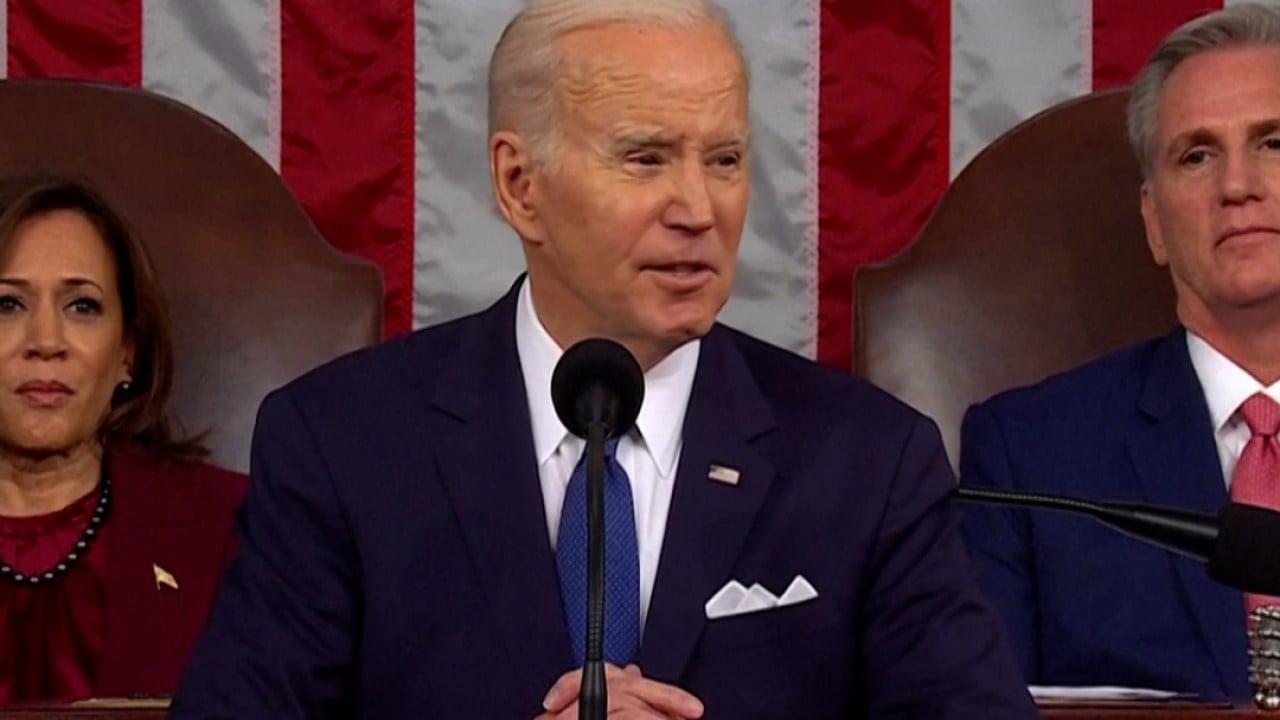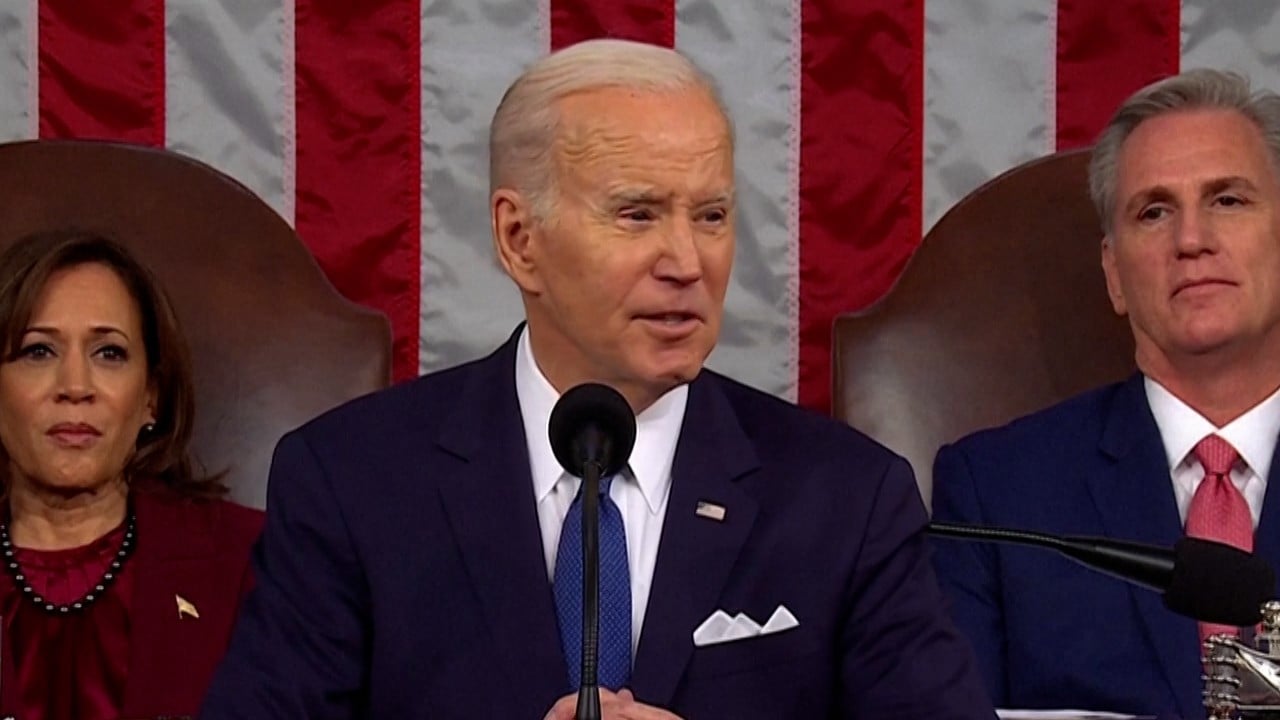
“Today, we’re in the strongest position in decades to compete with China or anyone else in the world,” Biden said in a 73-minute prelude to another possible run for the White House.
“Winning the competition [with China] should unite all of us.”
Arguing that democracies have strengthened and autocracies have weakened, Biden dared the crowd to “name me a world leader who’d change places with Xi Jinping”.
In an indirect reference to a Chinese balloon shot down in US airspace, Biden also pledged to protect US sovereignty against threats from China.
“But make no mistake: as we made clear last week, if China threatens our sovereignty, we will act to protect our country. And we did,” he said.
The rare back-to-back, sternly worded addresses by the two leaders come as the US and China remain locked in intense competition across several fronts with little hope for improved relations soon.
With top diplomat Antony Blinken postponing a trip to China and American authorities starting to examine recovered balloon debris, tensions have mounted.
The most recent exchanges have underlined the deep-rooted and wide-ranging differences between the two countries, and an eagerness to show strength over the other side, according to experts.
“Ideological rivalry is a key aspect of US-China competition,” said Shi Yinhong, an international relations professor at Renmin University in Beijing.
“And both sides are using their own declarations [of superiority] to repeatedly enrich such a rivalry.”
The most important remark in Biden’s Tuesday speech was to call on the two major political parties to unify in the confrontation with China, Shi said.
The mirror mentalities of the two sides were the result of similar assessments of their own strengths, he said.
“Both sides said they have advantages over the other, so why bother to compete so hard? It’s because both think they have partial advantages, but are not as confident in their advantages as they claimed in their rhetorical remarks,” he said.
“Wishful thinking,” said Alfred Wu, an associate professor at the Lee Kuan Yew School of Public Policy at the National University of Singapore, referring to any suggestion that Xi had been weakened in recent months and was more willing to yield to the US side.
“There are some sort of arguments saying that Xi Jinping wants to have a peaceful environment particularly as he started his third term when it was not so smooth because of Covid, and the economy is not doing good, so [China would] simply want to make a compromise and be soft,” he said.
“The two sides have very strong competition and there is no middle ground.”
But Pang Zhongying, a chair professor of international political economy at Sichuan University, said ideological rivalry might not necessarily worsen.
“Biden has said that the US is not seeking a conflict with China, and actually Blinken was to come to manage bilateral relations.”
But by stressing that their own political system is the best in the world, each side is veering into a “Cold War-like” competition, Pang said.
“Apparently both sides were speaking to their own domestic audience, and even though neither China nor the US admit that it is a cold war, what we are seeing now is these are the obvious signs of a cold war.”



